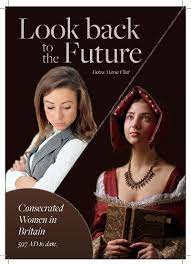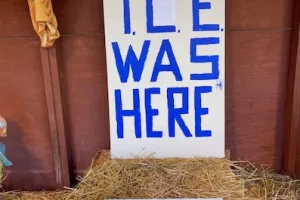Book: Exploring history of consecrated women

Look back to the Future: Consecrated Women in Britain 597 AD to date by Debra Maria Flint, published by DWM Press, Roscommon, Ireland. 2021. 166 pages. £8.99. ISBN 9781527288898 .
Easy to read this little volume traces the history of consecrated Catholic women in this country. Flint argues that new and restored forms of consecrated life are not properly promoted in the UK unlike in Europe.
Whilst in Anglo Saxon times consecrated women held great influence even holding office over male religious, the English Reformation completely eradicated such autonomy. It is in describing women of this early period Flint is at her best. Inspired by Walsingham and her husbands' research on its' founder, Richeldis, she spent over twenty five years exploring the history of consecrated women. Interestingly she reaches different conclusions to him as to Richeldis' identity.
Debra Maria Flint converted to Catholicism aged twenty one. After spending several years living in Greece she returned to Britain in 1983. She went on to study theology as a mature student, and met her husband.
After a varied career and following her husband's tragic death in 2014 she sought to follow an independent vowed way of life. Experiencing difficulties in attaining her goal, she spent several years exploring the limited options open to women today .It was by researching the past that she discovered the opportunities that had previously existed. She seeks especially to promote 'vowesses' - consecrated widows and single women, for the 21st.century in this lively book, highlighting the importance of this form of women's consecration.
She traces the history of female consecrated life at a rapid pace. She denounces Henry VIII in no uncertain terms as the root cause of the English Reformation and decline in opportunities for women's vocation outside of marriage. At the Reformation female religious orders were either pensioned off and disappeared into obscurity, along with anchorites and vowesses, or fled abroad.
An about turn of history saw female religious life renewed on these shores in the eighteenth century onwards by those fleeing European persecution .However, it did not afford opportunities that existed pre-Reformation for vowed women and anchorites to live independently of community life. These new women religious led an active form of female consecration bringing education to all classes- which was not the case previously- and provided many forms of welfare. Flint attests that it is as the state in modern times took over these roles, religious orders declined in Britain today.
She feels that the role of independent consecrated lay women, who follow their own careers and paths in life, needs to be promoted more by the Bishops' Conferences. She writes: "These women can play a vital part in evangelising and promoting their faith because they live and work in the world ....they are able to help others live a spiritual life in a secular world."
As suggested to Flint by a member of the Scottish Bishop's Conference this book provides a platform for discussion for the synodal process for the forthcoming Synod of the Laity.
More radically she suggests that the role of lay Cardinal should be open to women and that there is nothing historically to prevent this. Certainly there were lay men Cardinals who were never ordained, mainly in the sixteenth to early twentieth centuries. In 1917 the revised Code of Canon Law decreed that only priests or bishops could become cardinals.
However, Pope Paul V1 wanted to appoint the French Catholic philosopher Jacques Maritain as a lay Cardinal in 1968. Maritain declined. Flint argues that consecrated women could be appointed to such a role and be able to vote at synods as had the Anglo- Saxon Abbesses. In fact she considers those women had a similar role to lay Cardinals.
As well as Amazon on line and established bookstores her book is sold in 54 independent bookshops, including Cathedral and religious bookshops. Prinknash Abbey is the most recent stockist .
At times I felt that the text would greatly benefit from footnotes and hopefully a second edition would include these. This is a challenging and thought provoking book.


















